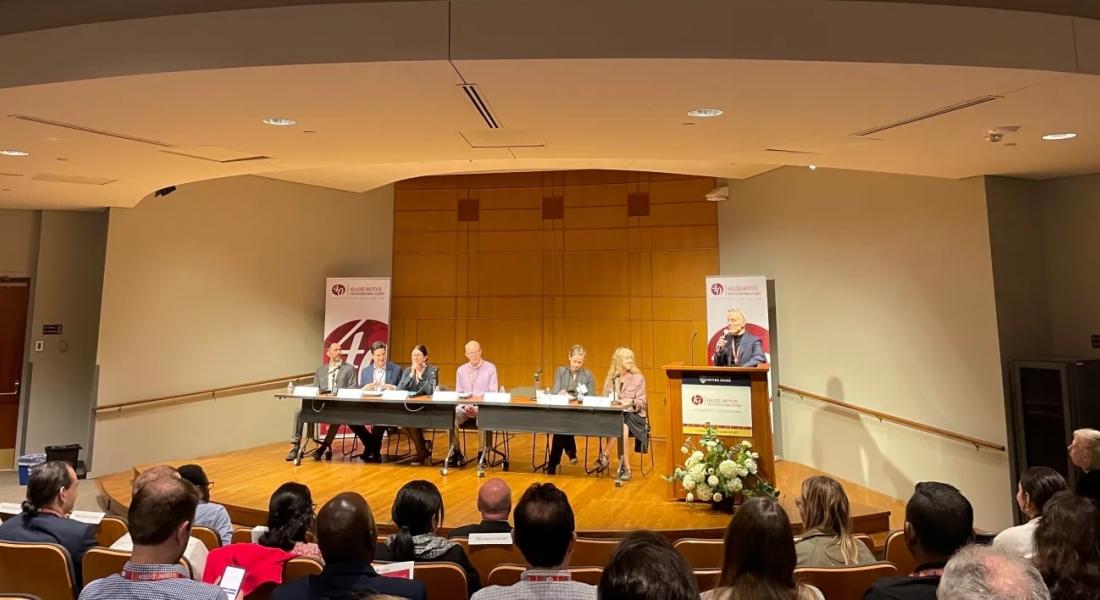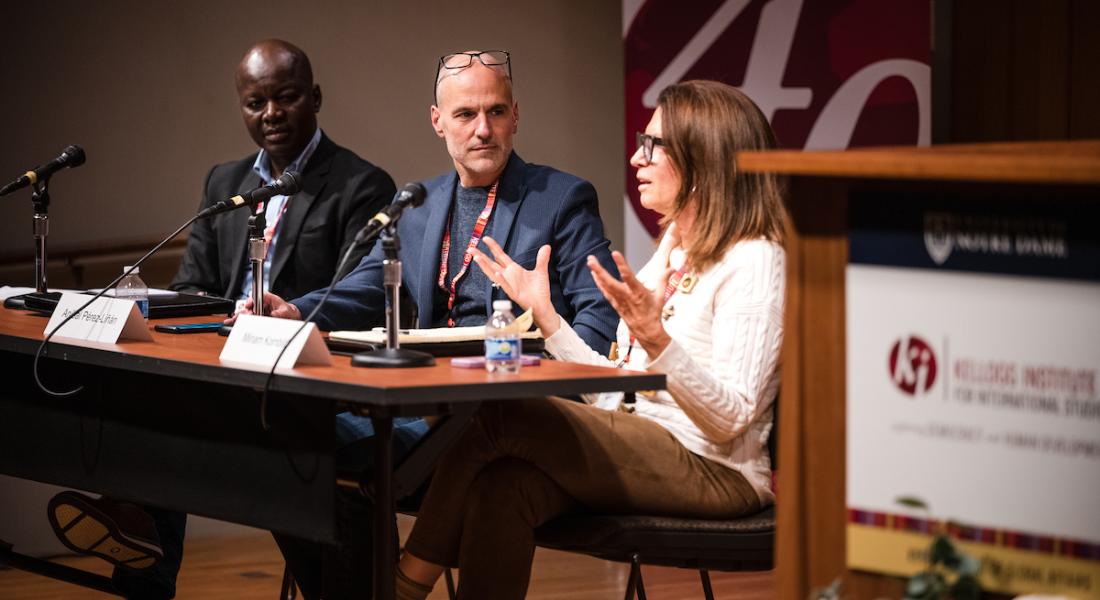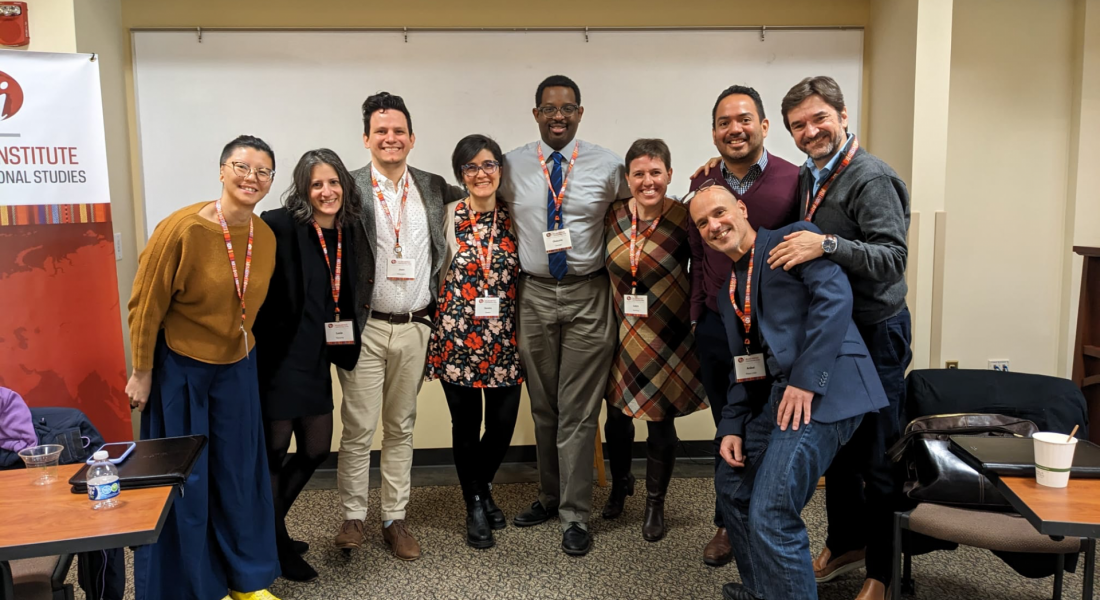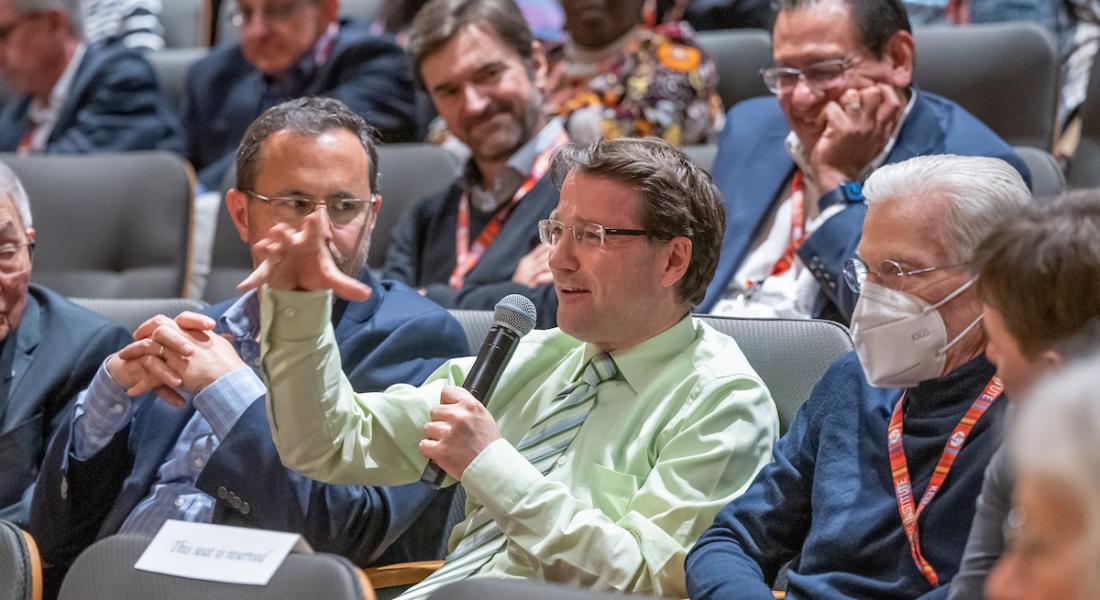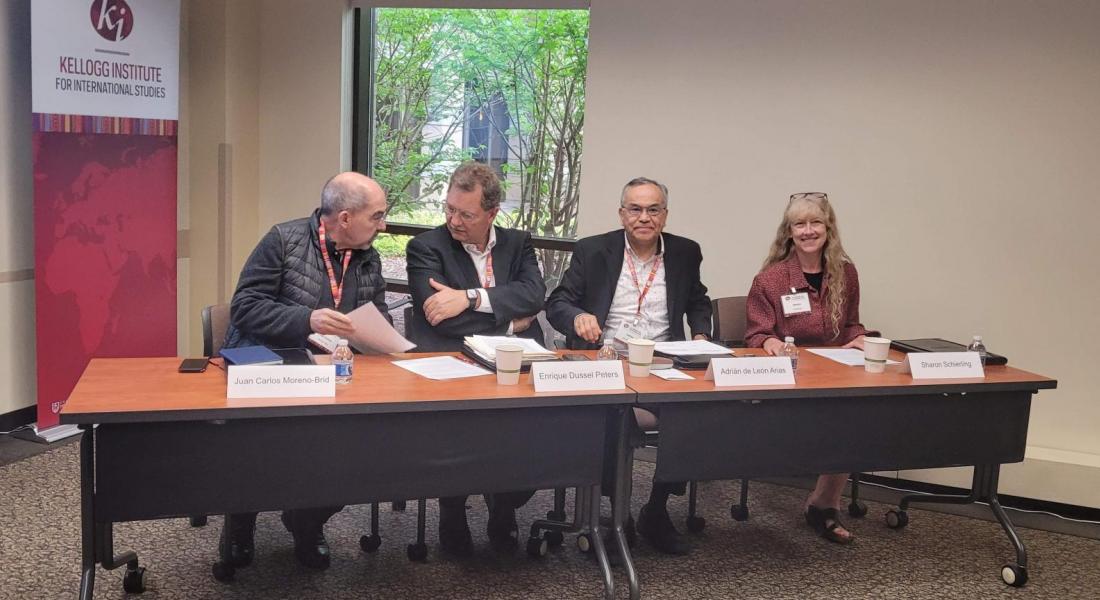This past weekend, the Kellogg Institute for International Studies celebrated its 40th anniversary, reflecting on four decades of global impact through its cutting-edge research and interdisciplinary collaboration.
Although not officially established until 1983, in 1979 Helen Kellogg, philanthropist and daughter-in-law of W.K. Kellogg — the founder of the well-known cereal company — gave a $10 million donation to the University to establish the institute.
With the $10 million — the largest single grant ever made to Notre Dame at the time — the institute was tasked with studying “the role of non-governmental forces” and “the growing role of economic developments, technology and such agencies as the Catholic Church and multinational corporations in international relations,” The Observer reported in 1979.
By 1983, under the guidance of then-University President Fr. Theodore Hesburgh and political scientist Guillermo O’Donnell, the institute was up and running.
In the ensuing decades, the Kellogg Institute has grown into a world-class research center, attracting scholars from around the globe. Focusing on democratization and human development, the institute researches questions relevant to democracies worldwide, such as the relationships between government, civil society, religion, social justice and accountability.
The 40-year milestone for the institute was commemorated with panels reflecting on its development over the decades and its current research, as well as with celebratory dinners on Friday and Saturday night.
The opening panel Friday afternoon featured scholars from various disciplines, showcasing the diverse perspectives emblematic of the Kellogg Institute’s philosophy.
The panel consisted of history professor Ted Beatty; law professor Paolo Carozza; professor of civil and environmental engineering and earth sciences Tracy Kijewski-Correa, professor of political science and former director of the Kellogg Institute Scott Mainwaring; current Kellogg Institute director Anibal Perez-Linan; and assistant professor of politics and global affairs Rachel Sweet.
The discussion was moderated by former Kellogg Managing Director Sharon Schierling, and teaching professor emeritus in the Keough School of Global Affairs.
R. Scott Appleby, dean of the Keough School of Global Affairs, introduced the panelists and offered his praise for what the Kellogg Institute has been able to accomplish during its lifetime.
“40 years is not a long time in the life of a university, but the Kellogg Institute has packed generations of students, world class faculty, staff and visiting fellows, international conferences, influential publications, reports, working papers and a series of distinguished directors into these four decades,” Appleby said.
As the panel began, Mainwaring highlighted that the Kellogg Institute’s success stems from its high level of scholarship.
“We are, first and foremost, a community of scholars. We need to be at the forefront of scholarship in order to have a high impact,” Mainwaring said.
Beatty said that in order for the institute to remain relevant, there must be a “continued emphasis on themes over disciplines.”
“We have an engineer, a lawyer and a historian up here, focusing on themes as a community,” Beatty said about his fellow panelists. Beatty praised the institute for conducting research “in interdisciplinary and international spaces.”
Along similar lines, Beatty said a strong relationship between the Kellogg Institute and the broader Keough School of Global Affairs, founded in 2014, is vital to the University.
“Kellogg has a critical role to play in ensuring the success of the Keough School,” Beatty said. “Kellogg is a key contributor to the life of the school and the success of the school. And that’s a vital part of the next generation of the University.”
Kijewski-Correa, herself a former engineer, echoed Beatty’s points, arguing that the Kellogg Institute’s ability to foster communication between different disciplines greatly enhances its work.
“How beautiful a world we live in when we build any form of community around the end of problems rather than disciplines,” Kijewski-Correa said. “[At the Kellogg Institute] I can holistically look at a problem for the first time, and have the permission, the space, and the partners to do that.”
Panelists emphasized that while the Kellogg Institute might tackle broad ideas in international affairs such as the development of democracy, what ultimately makes it so special is its attention to human experiences.
“On top of being technically outstanding, academically rigorous and innovative, [the Kellogg Institute] has a human dimension to it. And if Kellogg ever loses that human dimension, it will not be relevant,” Carrozza said.
Carrozza also lauded Notre Dame’s Catholic identity for its role as a contributing force behind the mindset and success of the institute.
“If there’s one thing that a Catholic University has, if nothing else, is its ideals are about the unity of all forms of knowledge,” Carrozza said.
Kijewski-Correa added that she hopes to see the institute build on this base by seeking deeper connections with the communities it interacts with.
“As we talk about that bringing together of a community committed to doing this work together, I guess my call would be that in our next 40 years, we make sure that community continues to expand to bring those closest to the problems on the ground into that community to do the research with us,” Kijewski-Correa said
Perez-Linan also supported this notion.
“We need to be very proactive in reaching out to the world to explain what we are doing and to share our resources,” Perez-Linan said.
Sweet said undergraduate students have a key role to play in spreading the Kellogg Institute’s research to the world.
“I just want to acknowledge that our youngest members of the community here are really integral and are integral also in carrying that torch forward into the future, as well as bringing that vision of Kellogg to wherever they’ll go, whether it’s study abroad or to a PhD,” Sweet said.
“Not only is Kellogg still relevant at 40, but my sense is that today it’s more relevant than ever,” Perez-Linan added.
This story originally appeared at ndsmcobserver.com.
The Kellogg Institute for International Studies, part of the Keough School of Global Affairs at the University of Notre Dame, is an interdisciplinary community of scholars and students from across the University and around the globe that promotes research, provides educational opportunities, and builds partnerships throughout the world on the themes of global democracy and integral human development.






